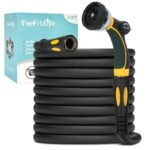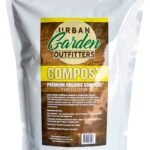Introduction to Organic Pest Control Methods
As a professional copywriting journalist, I believe that maintaining a healthy home is essential for both your physical and mental well-being. One crucial aspect of a healthy home is effective pest control. However, using chemical pesticides can have harmful effects on both your health and the environment. That’s why I want to introduce you to organic pest control methods.
Organic pest control methods involve using natural, eco-friendly, and non-toxic solutions to control pest infestations. Implementing these methods not only prevents harm to the environment but also helps safeguard your family’s health. Let’s explore some of the organic pest control solutions available.
11 Key Takeaways from Organic Pest Control Methods:
1. Safety First
Organic pest control methods prioritize the safety of humans, pets, and the environment, making them a preferred choice.
2. Eco-Friendly
These methods are sustainable and eco-friendly, reducing the carbon footprint and minimizing harm to beneficial insects and soil health.
3. Cost-Effective
Many organic pest control solutions can be made at home using common household items, making them cost-effective alternatives to chemical pesticides.
4. Versatility
Methods can be applied to a wide range of pests, from insects to rodents, offering a versatile approach to pest management.
5. Soil Health
Organic practices like crop rotation not only control pests but also improve soil fertility, leading to healthier and more robust plants.
6. Companion Planting
The use of insect-repelling plants as companions can create a natural barrier against pests, reducing the need for additional treatments.
7. Biological Control
Introducing beneficial insects is a form of biologic control that helps maintain a balanced ecosystem while keeping pest populations in check.
8. Non-Toxic Solutions
Organic gardening often use non-toxic substances like vinegar, neem oil, and earth, which are safe for both humans and pets.
9. Easy Monitoring
Methods like stick’em traps make it easy to monitor pest activity, helping you take timely action before an infestation gets out of hand.
10. DIY-Friendly
Many organic pest control methods are DIY-friendly, allowing gardeners to take immediate action without waiting for professional help.
11. Long-Term Benefits
Organic methods often provide long-term solutions by disrupting the life cycles of pests, making them a sustainable choice for long-term pest management.
List of 11 Effective Organic Pest Control Methods
1. Neem Oil Spray
Neem oil is a natural insecticide derived from the neem tree. It disrupts the life cycle of pests and acts as a repellent. It’s safe for pets and humans, making it an ideal choice for organic gardens. Simply mix neem oil with water and spray it on affected plants.
2. Garlic and Onion Spray
A homemade spray made from garlic and onions can repel a variety of pests. The strong smell repels insects and prevents them from feeding on plants. Blend garlic and onions, strain the mixture, and spray it on plants.
3. Diatomaceous Earth
Diatomaceous earth is a natural, non-toxic powder made from fossilized algae. It dehydrates insects upon contact, effectively killing them. Sprinkle it around the base of plants to protect them from crawling pests.
4. Insect-Repelling Plants
Certain plants like basil, mint, and marigolds naturally repel insects. Planting these alongside your crops can create a protective barrier against pests. This method is known as companion planting.
5. Beneficial Insects
Introducing beneficial insects like ladybugs and lacewings can help control pest populations. These insects feed on common garden pests, providing a natural form of pest control.
6. Crop Rotation
Rotating crops each season can disrupt the life cycle of soil-borne pests and diseases. This practice also improves soil fertility, making it a win-win for organic gardening.
7. Sticky Traps
Sticky traps are a simple yet effective way to catch flying insects. They are non-toxic and can be placed around the garden to monitor and control pest populations.
8. Vinegar Spray
A mixture of vinegar and water can act as an effective organic herbicide. It’s particularly useful for controlling weeds and can also repel certain types of insects.
9. Soap Spray
A mild soap solution can be used to treat a variety of soft-bodied insects like aphids and spider mites. The soap dissolves the protective coating of these pests, causing them to dehydrate and die.
10. Hot Pepper Spray
Capsaicin, the compound that gives hot peppers their heat, can be used as a natural insect repellent. Create a spray by blending hot peppers and water, and apply it to plants.
11. Hand-Picking
Though labor-intensive, hand-picking pests off plants is one of the most direct and effective methods. It’s particularly useful for larger pests like caterpillars and beetles.
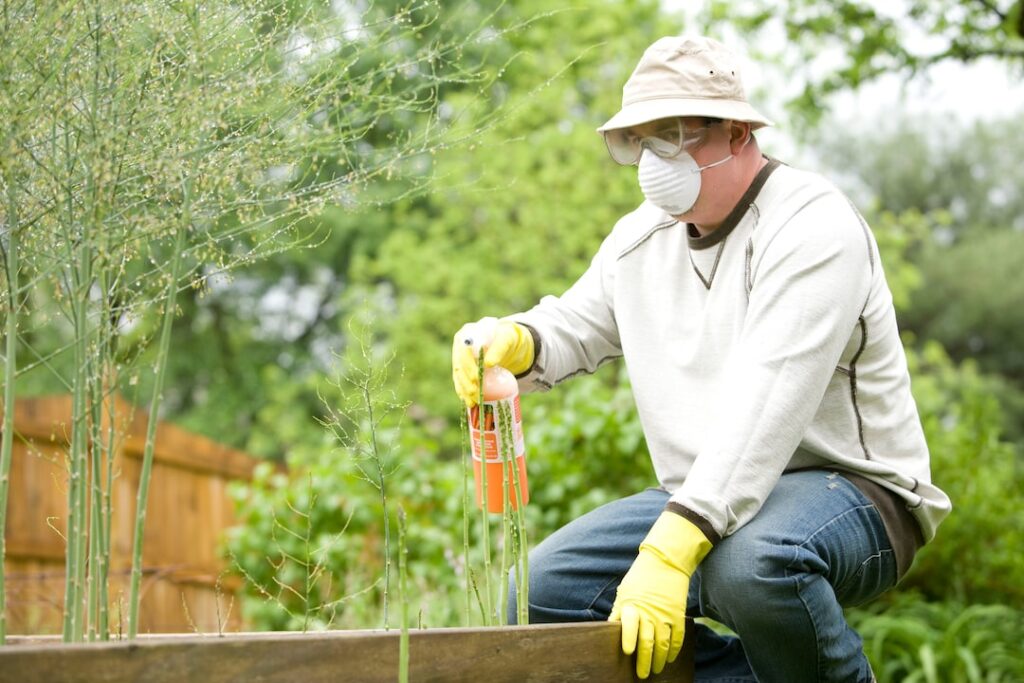
Integrated Pest Management (IPM) as an Effective Organic Control Method
As I delve into the world of organic pest control methods, I realize that Integrated Pest Management (IPM) plays a crucial role. IPM is a holistic approach to pest management that focuses on preventing pest problems through early detection and monitoring. It emphasizes the use of natural and eco-friendly methods to control pests, reducing the need for chemical intervention.
The principles of IPM include regular monitoring of pests, identifying them accurately, and assessing the damage they cause. Once the pest problem is identified, IPM focuses on prevention and control methods that minimize the use of pesticides. These methods may include creating a healthy habitat for plants, introducing beneficial insects, using natural repellents, and maintaining proper sanitation practices.
Read More OutdoorGoodness Articles:
One of the benefits of IPM is that it can be tailored to meet the specific needs of the situation. By understanding the life cycles and behavior of pests and their interaction with the environment, IPM offers targeted control measures that are both effective and sustainable. Furthermore, by minimizing the use of pesticides, IPM helps protect the health of humans, pets, and wildlife.
If you’re looking to implement organic pest control methods, I highly recommend incorporating IPM into your approach. With its focus on prevention and natural control methods, it can help create a healthy and sustainable living environment for you and your family.
Biological Pest Control Methods: Control in the Garden for Garden Pests
As I learned more about organic pest control methods, I realized that biological pest control can be an effective and sustainable solution for organic gardeners. Rather than relying on harmful pesticides, biological pest control utilizes predators, parasites, and pathogens to control pests. It’s a fascinating approach that can benefit both the environment and your garden.
Many pests have natural enemies that can help keep their population in check. For example, ladybugs and lacewings are excellent predators that feed on aphids, mealybugs, and other insects. These beneficial insects can be purchased online or at your local nursery and released in your garden to control pest populations. These are some of the best organic pest controls.
Slugs can be beneficial to organic gardens because they break down organic matter and turn it into nitrogen fertilizer.
Another technique is using biological agents, also known as microbial pest control. This method involves introducing natural bacteria, fungi, or viruses that are specific to the pest you’re targeting. These agents can infect and kill pests without harming other beneficial insects or the environment.
Overall, biological pest control methods are a sustainable and effective way to manage pest populations in your garden. By introducing beneficial insects or using biological agents, you can reduce the need for harmful pesticides and create a healthy, balanced ecosystem in your backyard.
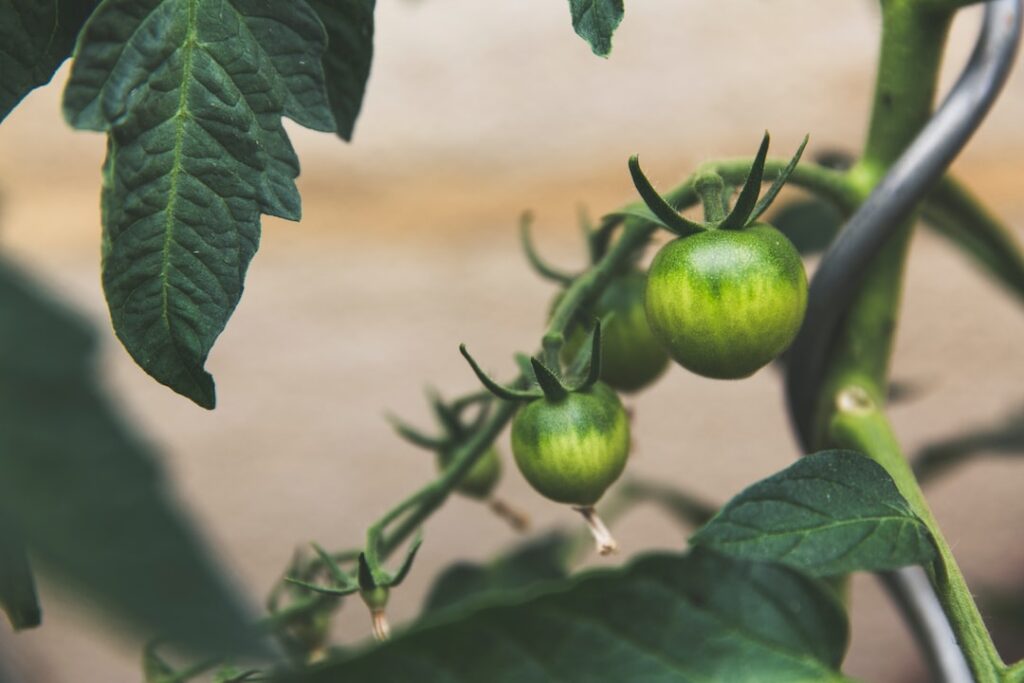
Creating a Pest-Friendly Habitat
One of the best ways to prevent pest infestations is by creating a pest-friendly habitat. By taking care of your garden or landscape, you can maintain a healthy environment that is less susceptible to pests. Here are some tips to help you get started:
- Focus on soil health by adding compost or organic matter and avoiding chemical fertilizers.
- Practice companion pairing by choosing plants that naturally deter pests or attract beneficial insects.
- Eliminate standing water and remove debris that can harbor pests such as rodents or insects.
- Use proper waste management techniques to minimize food sources for pests.
These simple steps can go a long way in preventing pest problems in your home or garden. By promoting a healthy and balanced ecosystem, you can enjoy a pest-free living without the need for harmful chemicals or interventions.
Natural Repellents and Deterrents as an Organic Method
When it comes to natural pest control, prevention is key. One of the most effective ways to keep varmints away from your home and garden is by using natural repellents and deterrents. Not only are these methods eco-friendly and chemical-free, but they also promote a healthy and balanced ecosystem.
One of my favorite natural repellents is essential oils. Peppermint, lavender, and eucalyptus oils are known for their insect-repelling properties and can be diluted and sprayed around the home and garden. Another effective method is planting herbs and flowers with natural insect-repelling properties, such as citronella, marigold, and rosemary.
Physical barriers can also be used to deter pests. Seal cracks and crevices around doors and windows to prevent insects from entering your home. Use netting or row covers to protect plants from insect damage.
By utilizing natural repellents and deterrents, you are decreasing the risk of pesticide exposure for yourself and your family. These methods promote a safe and healthy environment for all, while effectively controlling pests in a sustainable and eco-friendly way.
Eco-Friendly Pest Control Products: Chemical Control & Biological Control
Did you know that there are many eco-friendly pest control products available to use instead of chemical pesticides? We shouldn’t use traditional pest control methods. In its place, we should use more natural ways to deter pests. By using organic and natural products, we can control pests without harming the environment. We should never use anything that is harmful to the environment.
One option is to use insecticidal soaps, which are made from natural oils and are effective against soft-bodied insects. Another natural product is neem oil, which comes from the seeds of the neem tree and is effective against a wide range of pests, including aphids and spider mites. Diatomaceous earth, a powdery substance made from fossilized remains of diatoms, is another effective and natural option for controlling pests like ants, fleas, and bed bugs.
Not only are these products better for the environment, but they can also be safer for use around pets and children. So, why not give these eco-friendly pest control products a try and see the difference they can make in your home and garden?
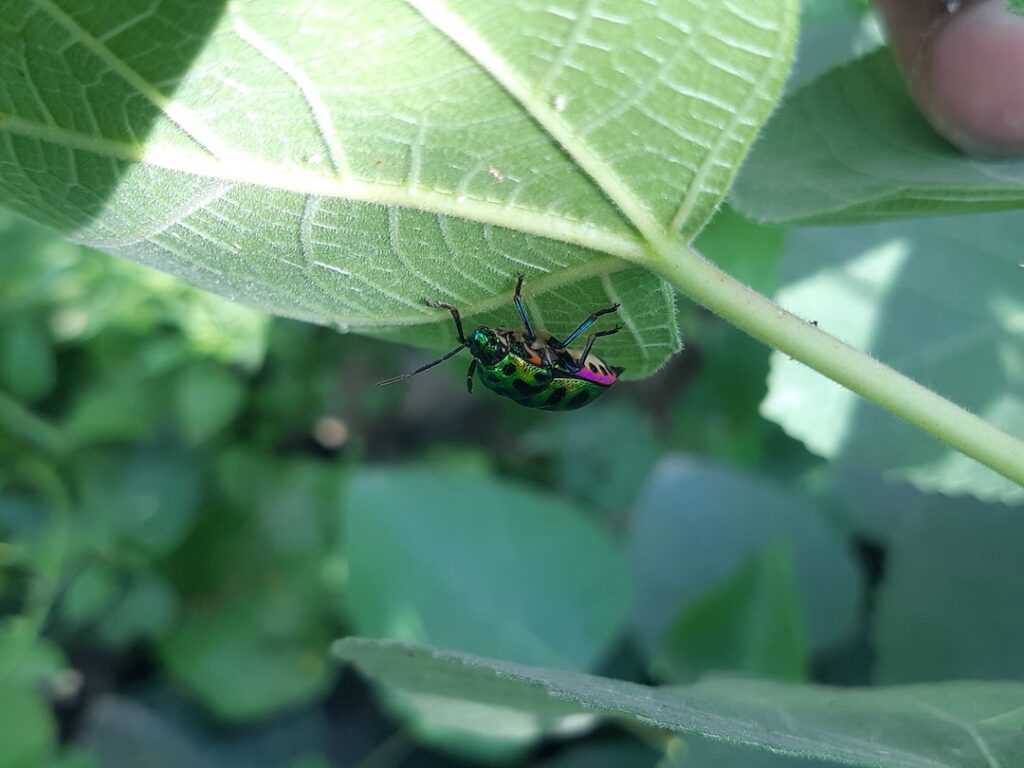
Pest-Resistant Plant Varieties
When it comes to sustainable pest control, choosing the right plant varieties can make a huge difference for Organic Pest Control Techniques. By selecting plants for insect control that are naturally resistant to common pests and diseases, you can reduce the need for chemical interventions and create a healthy ecosystem in your garden.
One way to choose pest-resistant plant varieties is to select plants that have been bred specifically for this purpose. Many nurseries and seed catalogs now offer plants that have been developed to resist common pests and diseases, such as powdery mildew or spider mites. These plants are a great option for those who want to minimize chemical interventions in their gardens and landscapes.
Another way to choose pest-resistant plant varieties is to do your research. Look for plants that are known to be resistant to specific pests or diseases. For example, marigolds are known to repel aphids, while garlic is a natural repellent for many insects. By selecting plants based on their natural pest-resistant properties, you can create a garden that uses organic pesticides that is both beautiful and functional.
Remember that even pest-resistant plants may still attract some pests. The key is to monitor your garden regularly and address pest problems as soon as they arise. By combining pest-resistant plant varieties with other organic pest control methods, such as creating a pest-friendly habitat and nurturing beneficial insects, you can create a healthy and sustainable garden that is resistant to pest infestations.
Nurturing Beneficial Insects
As an organic pest control enthusiast, I’ve come to learn the importance of nurturing beneficial insects. These insects are nature’s predators of common pests, and they help control pest populations without the use of harmful chemicals. By attracting and nourishing beneficial insects, we can create a healthy, balanced ecosystem that is resistant to pest infestations. It’s used to control the insect populations.
One way to attract beneficial insects is by planting a diverse range of flowers, herbs, and shrubs in your garden. These plants provide a rich source of nectar and pollen, attracting pollinators like bees and butterflies. Some plants also have insect-repellent properties that can help repel pests from your garden.
In addition to providing food sources, it’s important to create suitable habitats for beneficial insects. For example, you can install bee boxes or insect hotels to encourage pollinators and other beneficial insects to take up residence in your garden. You can also leave some areas of your garden un-mowed or untrimmed to provide nesting sites for ground-dwelling insects.
By nurturing beneficial insects, we can create a natural defense system against pests. These insects will help control pest populations, reducing the need for chemical interventions. Not only is this method effective, but it’s also sustainable and eco-friendly, promoting organic pest prevention.
Effective Pest Monitoring
As I embrace organic pest control methods for the Home Gardener, I have realized the significance of regular pest monitoring. Integrated pest management includes monitoring for pests regularly to detect any signs of infestation early. This practice helps to identify the pest species present, understand their life cycle, and take necessary measures to prevent their multiplication.
Regular monitoring, throughout your garden, allows me to assess the effectiveness of the control methods I have implemented and adjust them accordingly. It also helps reduce the risk of pests developing resistance to control measures and causing severe damage.
Record-keeping is an essential aspect of effective pest monitoring. By keeping accurate records of the types and levels of pests present, I can evaluate the progress of the control measures and develop effective long-term pest control strategies. I use these records to identify trends in pest populations and predict potential pest problems in the future.
Integrated pest management also involves identifying and addressing the root cause of pest problems. Regular monitoring helps me identify areas with conducive conditions for pests, such as moisture, food sources, and shelter, and take corrective actions to prevent pest infestations from recurring.

Long-Term Pest Control Strategies & Healthy Soil
As someone who values a chemical-free, sustainable approach to pest control, I understand the importance of implementing long-term strategies to keep my home and garden pest-free. By following some of these simple techniques, you can create a healthy environment that minimizes the need for chemical interventions.
Crop Rotation
Crop rotation involves planting different crops in a specific order, which helps to reduce the buildup of pest populations in the soil. This approach is especially useful for controlling soil-borne pests and diseases. By rotating crops each season, you can disrupt the life cycle of pests and stop them from building up in the soil.
Sanitation Practices
Sanitation practices involve keeping your home and garden clean and free of debris, which can harbor pests. Simple techniques like removing standing water, sweeping up fallen leaves, and regularly cleaning surfaces can go a long way in preventing pest infestations.
Proper Storage
Proper storage is crucial for preventing pests from invading your home. By storing food, pet food, and other organic matter in airtight containers, you can prevent pests like rodents and insects from accessing them. It’s also important to keep storage areas clean and well-organized, as clutter can provide hiding places for pests.
Conclusion
As I wrap up this article, I cannot stress enough the importance of using organic pest control methods for a healthier and sustainable living. By embracing natural, eco-friendly, and chemical-free pest control options, we can create a pest-free environment without harming ourselves, our loved ones, or the planet.
By implementing long-term pest control strategies like crop rotation, sanitation practices, and proper storage, you can create a pest-free environment without relying on harmful pesticides. These techniques not only reduce the need for chemical interventions but also promote a healthier, more sustainable way of living.
Integrated Pest Management (IPM) is a key principle for organic pest control, emphasizing monitoring, prevention, and control methods that focus on minimizing pesticide use. Biological pest control methods, such as introducing natural predators or using biological agents as a sustainable pest control solution, can also be effective.
Creating a pest-friendly habitat, using natural repellents and deterrents, selecting pest-resistant plant varieties, nurturing beneficial insects, and practicing effective pest monitoring are all vital components of organic pest prevention. Long-term pest control strategies, such as crop rotation, sanitation practices, and proper storage, also play an important role in minimizing pest problems in the future.
By using these organic pest control methods, we not only protect our health and home but also contribute to a healthier environment for future generations. So let’s take the first step towards an organic, eco-conscious way of life and embrace organic pest control methods today!
FAQ
Q: What are organic pest control methods?
A: Organic pest control methods involve the use of natural, eco-friendly, and non-toxic solutions to manage pests without the use of chemical pesticides. These methods focus on prevention, control, and creating a pest-friendly habitat.
Q: Why are organic pest control methods important?
A: Organic pest control methods are important because they prioritize the health of your home and the environment. By reducing reliance on chemical pesticides, you can protect yourself, your family, and beneficial organisms while maintaining a sustainable living environment.
Q: What is Integrated Pest Management (IPM)?
A: Integrated Pest Management (IPM) is an approach that combines various pest control techniques to effectively manage pests. It emphasizes monitoring, prevention, and control methods that aim to minimize pesticide use and prioritize long-term solutions.
Q: What are biological pest control methods?
A: Biological pest control methods involve using natural predators, parasites, and pathogens to control pest populations. This approach utilizes the natural enemies of pests to maintain a balance in the ecosystem and reduce the need for chemical interventions.
Q: How can I create a pest-friendly habitat?
A: Creating a pest-friendly habitat involves maintaining a healthy garden or landscape that discourages pest infestations. This can be achieved through proper waste management, soil health maintenance, and companion “helpful” planting techniques.
Q: What natural repellents and deterrents can I use for pest control?
A: Natural repellents and deterrents for pest control include essential oils, insect-repellent plants, and physical barriers. These methods can help keep pests away from your home or garden without relying on chemical pesticides.
Q: What are eco-friendly pest control products?
A: Eco-friendly pest control products are alternatives to chemical pesticides that are safe for the environment. These include organic and natural solutions such as insecticidal soaps, neem oil, and diatomaceous earth.
Q: How can selecting pest-resistant plant varieties help with pest control?
A: Selecting pest-resistant plant varieties can help reduce the need for chemical interventions. These plants are naturally resistant to common pests and diseases, making them a sustainable choice for pest control.
Q: How can I nurture beneficial insects for pest control?
A: Nurturing beneficial insects involves creating suitable habitats and providing food sources to attract pollinators, predators, and parasitic insects. These beneficial insects help control pests naturally and maintain a balanced ecosystem.
Q: Why is effective pest monitoring important?
A: Effective pest monitoring is crucial for integrated pest management. It allows for early detection, identification, and record-keeping, which are essential for managing pest populations and preventing infestations.
Q: What are some long-term pest control strategies?
A: Long-term pest control strategies include practices like crop rotation, sanitation, and proper storage. These strategies help eliminate or minimize the need for chemical interventions, ensuring sustainable pest control.
NCAT ATTRA Organic Pest Management PDF

Meet Kevin Goodell, your outdoor adventure coach! With a passion for nature ignited in childhood, Kevin brings a wealth of experience and expertise to simplify tough outdoor skills. As a U.S. Army veteran and former Sergeant, he has honed his leadership and teamwork abilities while developing a deep love for the great outdoors.
Kevin’s dedication to outdoor activities spans biking, birdwatching, national park trips, and archery/golf. With his friendly and approachable demeanor, he is committed to guiding individuals of all ages and skill levels towards unforgettable outdoor experiences.
Harnessing his extensive knowledge and personal achievements, Kevin is your go-to resource for learning and enjoying various outdoor pursuits. Whether you seek thrilling adventures or serene nature escapes, Kevin’s professional yet friendly approach will ensure an engaging and informative experience. Embark on your next outdoor adventure with Kevin Goodell and embrace the beauty of nature like never before.


